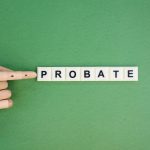When it comes to estate planning and asset distribution after someone passes away, it’s essential to understand the distinction between probate and non probate property. These terms refer to two different types of assets and the processes by which they are transferred to beneficiaries.
Probate Property: It encompasses assets that are subject to the probate process. These estate distribution assets are typically owned solely by the deceased individual and do not have designated beneficiaries. Real estate, bank accounts without payable-on-death designations, and personal belongings are common examples. When an individual passes away, it is distributed to beneficiaries or heirs based on the instructions outlined in their will or according to the laws of intestacy in the absence of a will.
Non-Probate Property: Non-probate property, on the other hand, refers to assets that bypass the probate process and transfer directly to designated beneficiaries. These estate distributioassets are transferred according to instructions or designations made by the deceased person during their lifetime. It includes assets held in a living trust, life insurance policies with named beneficiaries, retirement accounts with designated beneficiaries, and assets with joint ownership and survivorship rights.
Both represent distinct categories of assets and the corresponding processes for their distribution. While probate involves court supervision and can be time-consuming, non-probate transfers provide a more streamlined approach to asset distribution. No matter who are you, seeking professional legal advice is highly recommended.
Key Differences: The main differences between both of these lies in how they are transferred after death and the involvement of the probate process. Here are some key distinctions:
- Transfer Process: Probate assets require court-supervised administration through the probate process, which involves validating the will, paying debts, and distributing assets. Non-probate assets, on the other hand, transfer directly to beneficiaries outside of probate, following the instructions or designations made by the deceased person.
- Timelines and Costs: Probate proceedings can be time-consuming, lasting several months or even longer, depending on the complexity of the estate. Additionally, probate can involve various costs, such as court fees and legal fees. Non-probate assets generally transfer more quickly and with fewer associated costs since they do not go through the probate process.
- Privacy and Public Records: Probate proceedings are typically a matter of public record, meaning that the details of the deceased person’s assets and beneficiaries become accessible to the public. Non-probate transfers, on the other hand, often provide greater privacy since they occur outside of the probate process.
- Legal Assistance: While the probate process usually requires the involvement of a solicitor or probate lawyer, non-probate transfers may not necessarily require legal assistance. However, consulting with a solicitor can still be beneficial to ensure that the non-probate transfers are properly executed and aligned with the deceased person’s overall estate plan.
At Gordon and Thompson Solicitors, we understand the complexities of both ones. Our experienced team can provide the necessary expertise and support to navigate the legal requirements, streamline the administration process, and ensure that your assets are distributed in accordance with your intentions. Contact us today for a consultation, and let us assist you in securing the future of your estate with confidence.
Remember, probate and non probate property each have their own considerations, and the right approach depends on your unique circumstances. With the guidance of knowledgeable professionals, you can make well-informed decisions and create a comprehensive estate plan that protects your assets.
Related Posts
- 77
The probate Process is a legal process that follows the death of an individual, ensuring the orderly distribution of their estate. While the term "probate" might sound intimidating, this blog aims to demystify the process and provide you with a clear understanding of what probate entails. Whether you're an executor…
- 66
- 62probate Solicitors in Brolmey probate Probate is a crucial legal process that involves administering the estate of a deceased person, ensuring their assets are distributed according to their wishes. Gordon and Thompson Probate Solicitors in the UK specialize in wills law, providing expert guidance and support to clients during this…
- 52
Estate planning is the process of making essential arrangements for the management and distribution of your assets and affairs during your lifetime and after your passing. Its primary goal is to provide financial security and peace of mind for yourself and your loved ones. It involves preparing legal documents such…
- 4101. 10+ Years Of Experience For almost 2 decades, we have provided high-quality legal representation to property owners and many families. 02. Clear & Responsive We value clear and frequent communication with our clients to ensure they understand the litigation process and how their cases are progressing. 03. Aggressive Representation…





